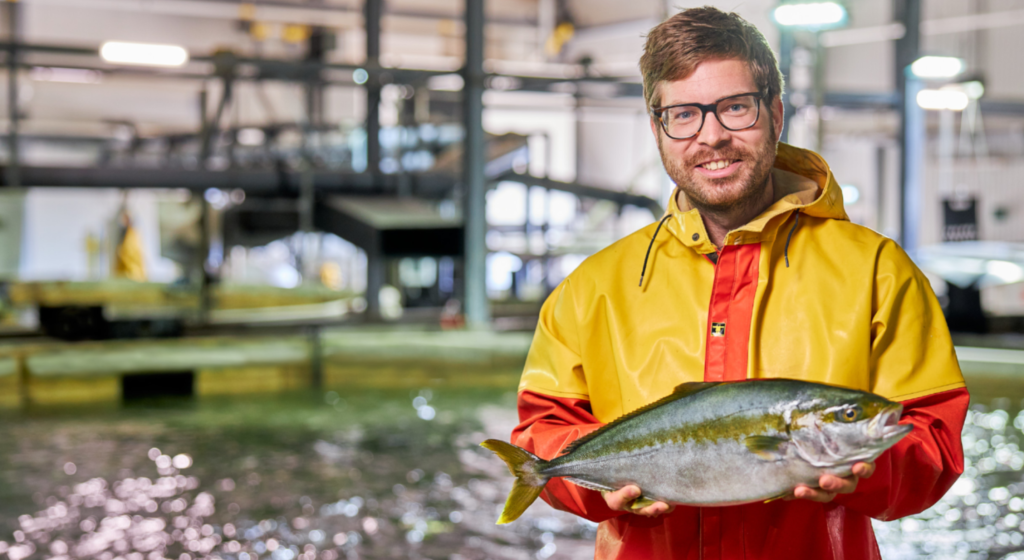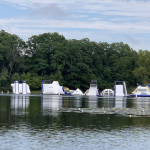A Bold Step Towards Sustainable Fish Farming
In a significant move towards establishing a large-scale aquaculture operation in Jonesport, Maine, Kingfish Maine has taken a proactive step by receiving its first shipment of yellowtail kingfish from the Netherlands. This initiative, spearheaded by the U.S. arm of Dutch company Kingfish Zeeland, marks a crucial phase in their ambitious plan to create a state-of-the-art fish farm on American soil.
Preparing for the Future
Megan Sorby, operations manager for Kingfish Maine, emphasizes the importance of this early preparation. “When you’re planning a large facility, it’s critical to get the fish ready ahead of time,” she explains. The company is currently nurturing these tiny “fingerlings” – smaller than a thumbnail – at a leased space within the University of Maine’s Cooperative Aquaculture Research Center in Franklin, demonstrating their commitment to the project’s success even before final approvals are secured.
Navigating Regulatory Waters
The path to establishing this innovative aquaculture facility is not without its challenges. Kingfish Maine is awaiting crucial permits from the Army Corps of Engineers and the Jonesport Planning Commission. The proposed 573,500-square-foot recirculating aquaculture system represents a significant investment, estimated at $100 million, with the potential to create 70-100 jobs in the area.
Community Concerns and Company Responses
As with many large-scale developments, the project has faced scrutiny from local residents. Chris Smith, representing a group called Protect Downeast, voices concerns about the company’s approach, particularly their decision to begin fish operations before securing all local permits. This tension highlights the delicate balance between economic development and community interests in coastal Maine.
Environmental Considerations
Central to the debate is the project’s environmental impact. The facility plans to discharge up to 29 million gallons of treated wastewater daily into Chandler Bay. While state environmental agencies have granted necessary permits, ensuring that water quality will not be compromised, some local fishermen remain apprehensive about potential effects on their livelihoods.
A Vision for Integration
Despite these challenges, Kingfish Maine sees potential for synergy with existing local industries. Megan Sorby envisions collaborations in infrastructure and logistics with the lobster fishing community. The company is also exploring innovative ideas, such as using their fish as lobster bait and producing biogas from waste, demonstrating a commitment to circular economy principles.
Market Potential and Economic Impact
Yellowtail kingfish, primarily known for its use in sushi, represents a growing market opportunity. With plans to supply major markets in Boston and New York, Kingfish Maine aims to position itself as a key player in the U.S. aquaculture industry. The company’s products are already available in Whole Foods, showcasing the market’s readiness for sustainably farmed fish.
Looking Ahead
As Kingfish Maine moves forward with its plans, the company continues to engage with the community, addressing concerns and highlighting the mutual benefits of maintaining environmental quality. Tom Sorby’s statement, “If we want to make money, we need to protect the bay,” underscores the alignment between the company’s economic interests and environmental stewardship.
This project represents a significant step in the evolution of aquaculture in the United States. As Kingfish Maine navigates the complex interplay of innovation, regulation, and community relations, its success could set a precedent for future sustainable fish farming initiatives across the country.







